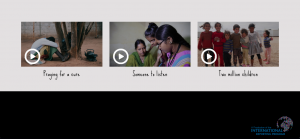It’s usually diseases like HIV/AIDS, malaria, or Ebola that get most of the global health headlines. But mental illness is actually the leading cause of disability worldwide. The majority of those affected live in low-income countries, where as many as three-quarters of people don’t receive any treatment at all. Funding for mental health rarely makes it into stretched health budgets. The little funding that exists ends up going in to mental institutions, many of which have appalling conditions. Many of these countries have weak policies and laws protecting the rights of people with mental illnesses, if rules exist at all.
Mental health professionals are few and far between, with many countries having just one psychiatrist for every two million people. Often there is no access to common medications. Stigma is rampant. The result is millions of people with mental illnesses living without treatment or dignity, a situation that has been called a “hidden crisis” in human rights.
The 2015 International Reporting Program project, Out of the Shadows set out to shine light on the miserable conditions that so many people with mental illnesses endure. But also aimed to find solutions – innovative ideas that are fairly easily implemented and can make a big difference. In December, 2014, IRP fellows travelled to Benin and Togo in West Africa, India and Jordan to find stories of people living with mental illness and the people working to help them.
The team’s reporting led to individuals around the globe who are driven to make a difference for people living with mental illnesses. They found strong, passionate leaders – many having experienced mental illness themselves – who are working with minimal resources to have the maximum impact.
This project was made possible by a grant from the Mindset Social Innovation Foundation and the generous support from individuals who donated to the “In the Shadows” fundraising campaign. You can explore previous International Reporting Program projects on the program’s site.




